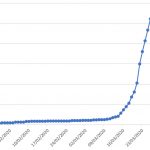The author’s intention is to study cases that “suggest an architectural history of spaces that have been generated or extensively reconstituted by electric light.” His thesis is “the electric light changes the underlying nature of a space.”



The author’s intention is to study cases that “suggest an architectural history of spaces that have been generated or extensively reconstituted by electric light.” His thesis is “the electric light changes the underlying nature of a space.”

Reflective thinking allows humans to examine the past with intentionality, learn from what happened, and adapt accordingly. We explore thoughts, feelings, and actions, mine out insights, and enhance awareness.

Morris’s book is difficult to read, not only because it is written in reverse chronological order, but because he does not understand the technology he is writing about.

The fiercest public health crisis in a century has elicited cooperative courage and sacrifice across the globe. At the same time, the COVID-19 pandemic is producing severe social, economic, political, and ethical divides, within and between nations. It is reshaping how we engage with each other and how we see the world around us. It urges us to think more deeply on many challenging issues—some of which can perhaps offer opportunities if we handle them well. The transcripts that follow speak to the potency and promise of dialogue. They record two in a continuing series of “COVID-19 In Conversations” hosted by Oxford Prospects and Global Development Institute.

Digital discrimination is becoming a serious problem, as more and more decisions are delegated to systems increasingly based on artificial intelligence techniques such as machine learning. Although a significant amount of research has been undertaken from different disciplinary angles to understand this challenge—from computer science to law to sociology— none of these fields have been able to resolve the problem on their own terms. We propose a synergistic approach that allows us to explore bias and discrimination in AI by supplementing technical literature with social, legal, and ethical perspectives.

Disease prevention due to successful vaccination is a double-edged sword as it can give the illusion that mass vaccination is no longer warranted. Antivaccination movements are not completely absent throughout history, but for example, most recently, parents have been declining childhood vaccines at alarming levels [2, S9]. Safety concerns and misinformation seem to be at the forefront of these movements.

Few people would celebrate modern infrastructure networks as magnificent beacons of our civilization: our powerlines and pipelines are drab, unsightly intrusions on the landscape. Reflecting on this, the philosopher Alain de Botton points out the Roman aqueduct at Pont Du Gard in Southern France, which is now a famous tourist attraction even though it was built for the dull task of supplying municipal water. Wisely, the Romans built it, and many others, for both beauty and function, brightening citizens’ views while slaking their thirst. Indeed, so lovely is the Roman aqueduct of Segovia that it is featured in the emblem of that province.

Unintended consequences of technological development matter in practice and thus are not just of academic interest. SSIT would do well to spark constructive and practical discussion about managing unintended consequences.

Just as the “autonomous” in lethal autonomous weapons allows the military to dissemble over responsibility for their effects, there are civilian companies leveraging “AI” to exert control without responsibility.
And so we arrive at “trustworthy AI” because, of course, we are building systems that people should trust and if they don’t it’s their fault, so how can we make them do that, right? Or, we’ve built this amazing “AI” system that can drive your car for you but don’t blame us when it crashes because you should have been paying attention. Or, we built it, sure, but then it learned stuff and it’s not under our control anymore—the world is a complex place.